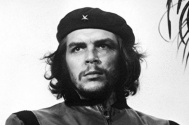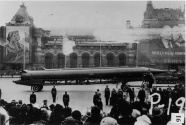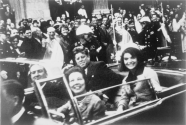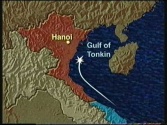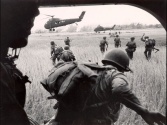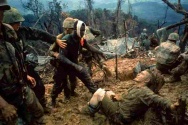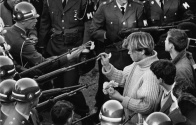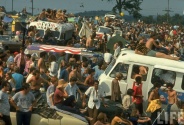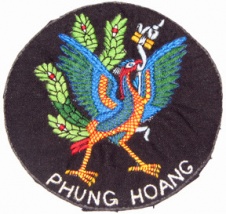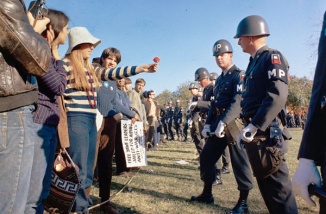1960s
| 1950s« | |
|---|---|
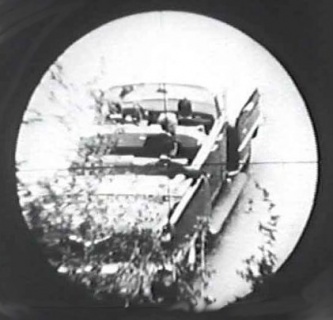 The JFK assassination was the seminal post-WW2 event in the history of deep politics. | |
| In the early 1960s a cabal of ruthless, rich and increasingly desperate men organised the JFK assassination. None of them was successfully prosecuted for this coup, which quickened the group into becoming the cabal which still controls the US Presidency to this day. |
Contents
JFK Assassination
- Full article: John F. Kennedy/Assassination
- Full article: John F. Kennedy/Assassination
A small group of CIA insiders, oil barons, Vietnam war profiteers and others known to be hostile to the policy of John F. Kennedy arranged and executed his assassination in Dallas, Texas in November, 1963. The complex plot went almost according to plan, though the "lone nut", Lee Harvey Oswald was not killed but captured alive - something remedied two days later when he was murdered by Jack Ruby. The new US President Lyndon B. Johnson moved quickly to contain the facts of what happened, and large commercially-controlled media support proved decisive in the short run at containing disbelief of the Warren Commission's obvious fraud.
Other Assassinations
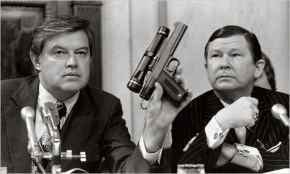
- Full articles: Robert F. Kennedy/Assassination, Martin Luther King/Assassination
- Full articles: Robert F. Kennedy/Assassination, Martin Luther King/Assassination
Empowered by successfully committing one high profile assassination, the cabal increasingly used such methods as a way of dealing with opponents whom they could not bride or blackmail into compliance. Most of these were done in secret using CIA-developed technologies exposed in the 1970s after investigations by the House Select Committee on Assassinations.
Vietnam War
- Full article: Vietnam War
- Full article: Vietnam War
LBJ reversed JFK's policy on the Vietnam War and deployed increasing numbers of US ground forces, under the doctrine of "containment". This allowed the CIA to carry out the Phoenix Program - destructive research into the effects of extreme violence and sadism on the populations of Vietnam, Laos and Cambodia. Probably the main effect of the war was expanding the CIA's drug trafficking operations.
War resistance
As the Vietnam War continued without a victory in sight, the US public was increasingly swayed by anti-war campaigners such as Martin Luther King and Noam Chomsky. This flowered into a non-violent anti-war counter-culture, which mobilised unprecedented numbers of young people, for example in 1967 in the Summer of Love in San Francisco. Like the Occupy Wall Street movement of 45 years later, this expression of mass dissent appeared to bemuse and catch the establishment off guard.
As well as the usual violent repression, counter-strategies included the launching of Richard Nixon's "war on drugs", a clandestine attack on anti-war protestors and negroes.[1]
Related Quotations
| Page | Quote | Author | Date |
|---|---|---|---|
| Interpen | “Interpen (Intercontinental Penetration Force) was established in 1961 by Gerry P. Hemming. Other members included Loran Hall, Roy Hargraves, William Seymour, Lawrence Howard, Steve Wilson, Howard K. Davis, Edwin Collins, James Arthur Lewis, Dennis Harber, Bill Dempsey, Dick Whatley, Ramigo Arce, Ronald Augustinovich, Joe Garman, Edmund Kolby, Ralph Schlafter, Manuel Aguilar and Oscar Del Pinto. A recently declassified document says that in 1962, Robert Emmett Johnson was a member of Interpen. Later that year Johnson invited Robert K. Brown (USAR/CounterIntelligence Corps) to a meeting in Miami. Brown was the publisher of Alberto Bayo's 100 Questions for a Guerrilla. This book included an article written by Ulius Amoss called Leaderless Resistance which "referred to the proper strategy for conducting resistance operations against Castro and inside/outside of Cuba". The document also goes onto say: "Also included were numerous fotos of the G/W instructor cadre of InterPen which were taken by Brown at the Everglades training camp." Interpen was also involved in training members of the anti-Castro groups funded by people like Roland Masferrer, Carlos Prio and Santos Trafficante. When the government began to crack down on raids from Florida in 1962, Interpen set up a new training camp in New Orleans. The group carried out a series of raids on Cuba in an attempt to undermine the government of Fidel Castro. These stories were reported by the photo-journalist, Tom Dunkin, for Life Magazine. Roy Hargraves working closely with Felipe Vidal Santiago, carried out a series of raids on Cuba in the 1960s (23 in 1962). This involved a plan to create a war by simulating an attack on Guantanamo Naval Base. In 1963 Hargraves led a team of exiles in a successful raid on Cuba. After capturing two Cuban fishing boats Hargraves took them to the Bahamas. Some members such as William Seymour and Edwin Collins, worked with Bernardo De Torres on non-Interpen operations in 1963. Declassified FBI files show that the agency had an informer within Interpen. His code name was MM T-1. In one document dated 16th June, 1961, it said that MM T-1 had “been connected with Cuban revolutionary activities for the past three years”. One document dated 12th May, 1961, claims that Allen Lushane of Miami “had made a trip to Texas to recruit Americans for some future military action against the Government of Cuba”. The document adds that the “first training camp was established by Gerald Patrick Hemming with Dick Watley and Ed Colby running the camp.” In an interview that he gave to John M. Newman on 6th January, 1995, Hemming claims that the FBI informer was Steve Wilson. Some researchers believe that a combination of Interpen members, CIA agents and anti-Castro Cubans were involved in the assassination of John F. Kennedy. This included James Arthur Lewis, Roy Hargraves, Edwin Collins, Steve Wilson, Gerry P. Hemming, David Morales, Herminio Diaz Garcia, Tony Cuesta, Eugenio Martinez, Virgilio Gonzalez, Felipe Vidal Santiago, Robert Emmett Johnson, Carl E. Jenkins, Chi Chi Quintero and William Robertson.<a href="#cite_note-1">[1]</a>” | John Simkin | 20 May 2015 |
| US/Deep state | “When Eisenhower warned against the military-industrial complex, the values, institutions, and resources that comprised it were still subordinate elements in American society. Today it not only dominates both parties, but it is also financing threats to both of these parties from even further to the right.” | Peter Dale Scott | 2015 |
